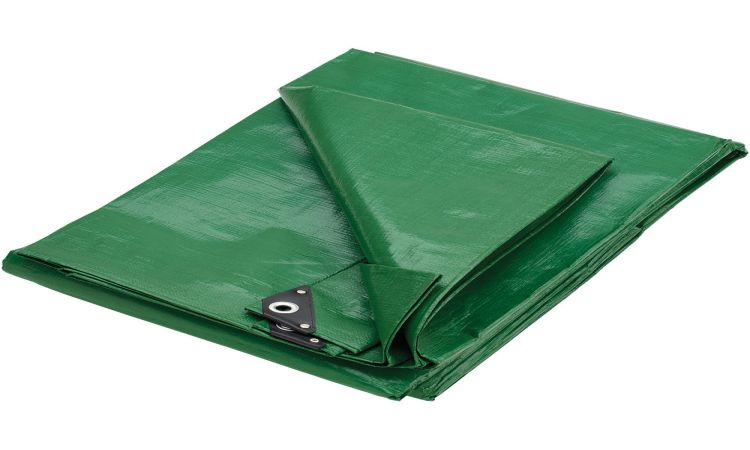 Tarpaulin is one of the most underrated, but widely used materials in our world today. It provides more than just shelter for people on construction sites; tarpaulins are also commonly used in industrial settings to keep equipment safe from weather damage, use on boats and ships allows for easy transportation across land or sea. Even tarpaulins can provide protection in an “unusual” fashion; they have been known to be used at events such as football matches to protect spectators from missiles, thrown by opposing fans. Such items may include beer bottles or fireworks if you’re unlucky!
Tarpaulin is one of the most underrated, but widely used materials in our world today. It provides more than just shelter for people on construction sites; tarpaulins are also commonly used in industrial settings to keep equipment safe from weather damage, use on boats and ships allows for easy transportation across land or sea. Even tarpaulins can provide protection in an “unusual” fashion; they have been known to be used at events such as football matches to protect spectators from missiles, thrown by opposing fans. Such items may include beer bottles or fireworks if you’re unlucky!
- Tarps are usually used for covering and protecting the cargo of a truck, trailer, or storage area’s contents from the elements, thus mainly rain and sun. This keeps the items dry and out of sight from potential stealing.
- However, tarpaulins also have two more functions: they can be used to create a shelter for workers or to indicate restricted areas (danger tarpaulin).
- Adding an extra protective layer is always useful in keeping cargo safe and preventing damage and loss. Here are some possible uses for tarpaulins depending on their size:
- Truck tarpaulins cover-up trucks’ contents by creating a kind of box around them; this means that anything transported inside will be kept secure even when the vehicle is moving on bumpy roads or anywhere else. All types of tarpaulin can be securely tied down, which makes them less likely to move or fly around when in transit.
Table of Contents
The tarpaulin box method is a great benefit for any delivery, no matter its size and specific purpose
PVC tarpaulins protect from the sun
- In general, tarpaulins are made from polyethylene (PE) whereas heavy-duty tarpaulins are made from PVC. PE is lighter than but not as hard-wearing as PVC, which makes it better suited to covering cars, small trucks, and garages’ perimeters. However heavy-duty tarpaulins will keep the roof of a large shipping container watertight so that whatever’s inside is kept safe and dry at all times even when it rains heavily outside: this is perfect for protecting any materials during transportation, especially in the case of transporting agricultural goods.
- PVC tarpaulins are more versatile than PE tarpaulins because they can be used not only for roofing but also as sidewalls to create a shelter or temporary storage area. If necessary this type of tarpaulin can even be used temporarily as flooring in order to protect the ground underneath it against the adverse weather conditions outside.
Tent tarpaulins
They’re made from PE tarpaulin and they come in different shapes (square, hexagonal, etc.) thus covering every shape of the tent possible. The good news is that these tarpaulins are waterproof; this means that whatever is put under them will stay dry and clean, even when it rains heavily.
Large tarpaulins
They get their name from the fact that they measure at least 2 x 2 meters in size and can cover a wide area around. Their main use is to temporarily seal off work areas from onlookers or bystanders; by doing so, the safety of any person working on site is ensured. In general, these tarpaulins are hard-wearing and UV resistant which means that they’ll last for a long time before needing re-securing or replacement.
Tarpaulins can be used for protecting and covering
- trucks’ cargo;
- large tarpaulin tents; – construction sites;
- agricultural goods transport;
- Temporary sealing of work areas.
Tarps are not only used to protect from rain, sun, or wind but also as a way to indicate dangerous areas on site (danger tarp) due to the presence of asbestos/chemicals, broken glass, etc. Tarpaulins come in many different forms and sizes: square tarpaulins, triangular tarpaulins, and round tarpaulins. All tarpaulin types have an eyelet at each corner so that they can easily be tied down.
Tarps are cheaper than tarpaulins because they’re made from PE tarpaulin whereas tarpaulins are made from PVC tarpaulin. Tarpaulins will last longer and work better in adverse weather conditions because they’re more UV resistant, waterproof, etc.
Conclusion
In conclusion, tarpaulins have lots of uses and benefits for all types of company, no matter their size or what it deals with: this applies mostly to transportation companies because tarpaulins can protect goods during transportation and create a secure yard or shelter to protect workers when they’re not working.






